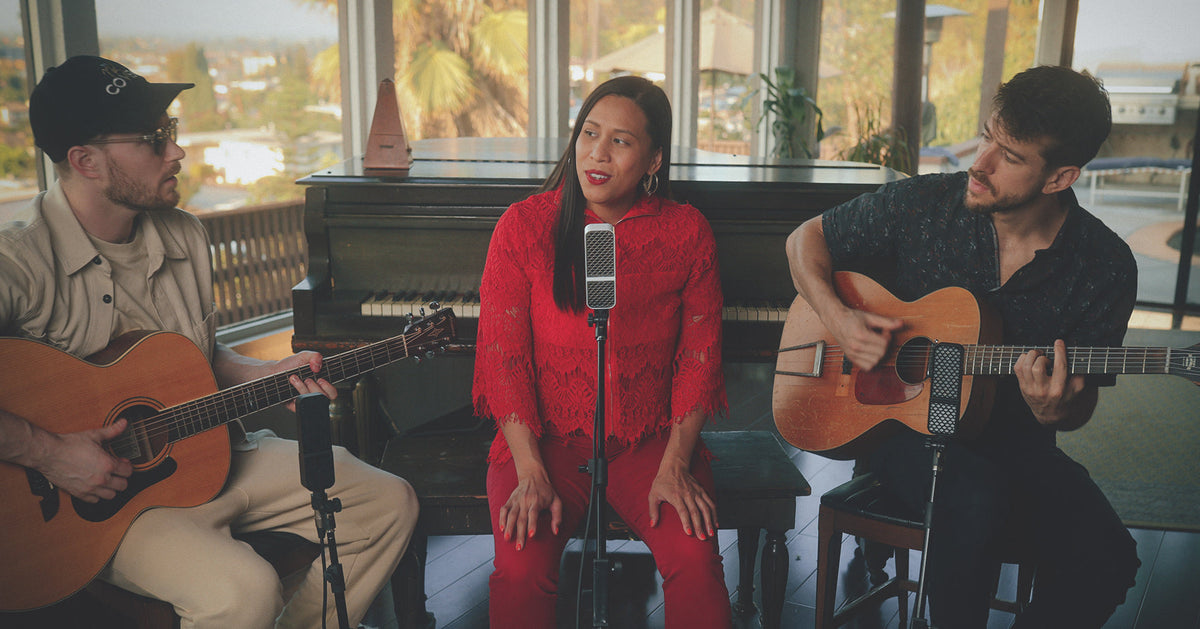
Why Ohma should be your first microphone
|
|
Time to read 3 min
|
|
Time to read 3 min
Purchasing a microphone can reel you through a lot of different emotions – joy, excitement, being overwhelmed, intimidation, or even fear. Whether you're a seasoned engineer or just getting started, there's always a little voice in the back of your head screaming something.
Your first car wasn't a Maserati, right? You don't even need to answer, we all know your first car was a Mazda. Most of us can't afford to go "all in" and get the best of the best. A professional studio microphone is an expense first-timers typically spend a lot of time preparing financially (and mentally) for. What if you don’t make the right decision? Are you compromising your artistic vision because of the cost? Is it worth waiting to save up for a “better” microphone? These are all valid questions and concerns that beginner microphone shoppers have.
When we learned how to record, there weren't a lot of options for mid-priced microphones without poor sound compromises (such as being too bright, not having enough low-end, etc.). As we did more research into what our favorite records were made with, the price range skyrocketed to over $10K - just for a single mic! There was no way we could emulate "the classics" with the gear we could afford as students and working at Italian restaurants. We could barely afford a $100 microphone! All we wanted was to make art the way we had imagined, but it seemed like we didn't have the tools or budget to make it happen. It was emotionally draining, to say the least.
But what if you could make a "$10,000 microphone" from scratch? And what if you learned you could make it for 7% of the cost?
With the right knowledge and parts, it's possible to build analog recording hardware for a considerable amount less money than buying it at the shop. Insulted by the prospect of not being able to afford a "nice" microphone, we saved up to make our own. Legos for adults, as we like to call them. We became passionate about figuring out which parts went together to craft our sound the way we imagined it.
Now, a decade later, we established Ohma to close the gap between beginner microphones and the industry standard. We wanted to make a microphone that was versatile enough for different voices and instruments, without breaking the bank.
Most beginner microphones only have one type of sound. You can’t change the sound after you purchase the mic. With Ohma, you can change the sound by switching out the screens. This means you can have the different sounds without having to spend more money on multiple mics.
We believe artists should capture their sounds without the limitations of their wallets. This is why we created Ohma: a versatile microphone that anyone, including beginners, can customize to fit the sound of your choice.
We’ve done the best we can to try and price Ohma at a cost significantly less than other microphones of comparable quality.
Picking your first microphone can be hard, especially if you play and record multiple instruments and have to filter through competing blurbs like, “Buy this mic if you're going to record this instrument / You're nuts if you put that mic on that source / Putting any mic other than this one on toms is heresy!"
All this yakking ends up making folks feel like imposters if they don't have enough cash to spend on "the mic"; that their recordings will not live up to what "real" engineers or studios can make. But that's absolutely not true.
Riddle me this: Instead of designing your sound around a microphone, what if the microphone designed its sound around you?!
Instead of designing your sound around a microphone, what if the microphone designed its sound around you?
With an Ohma mic, you can shape your sound however you want by changing out the screens. This means you don’t have to buy five different microphones to get five different sounds – you just need one Ohma.
We hope our approach will help take the guesswork (and anxiety) out of choosing your first mic. Ohma can be your all-in-one beginner microphone and accompany you through wherever your recording journey takes you.